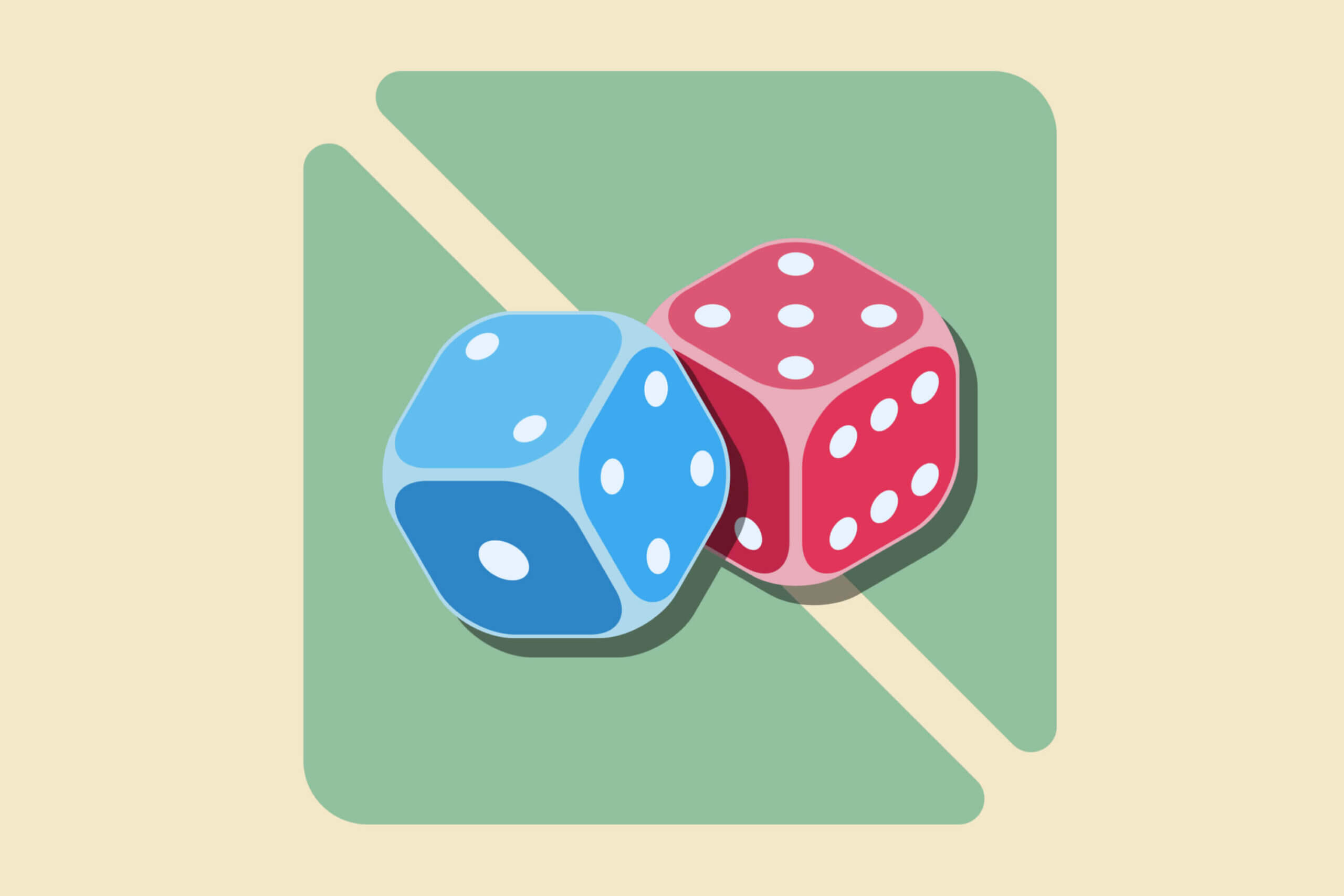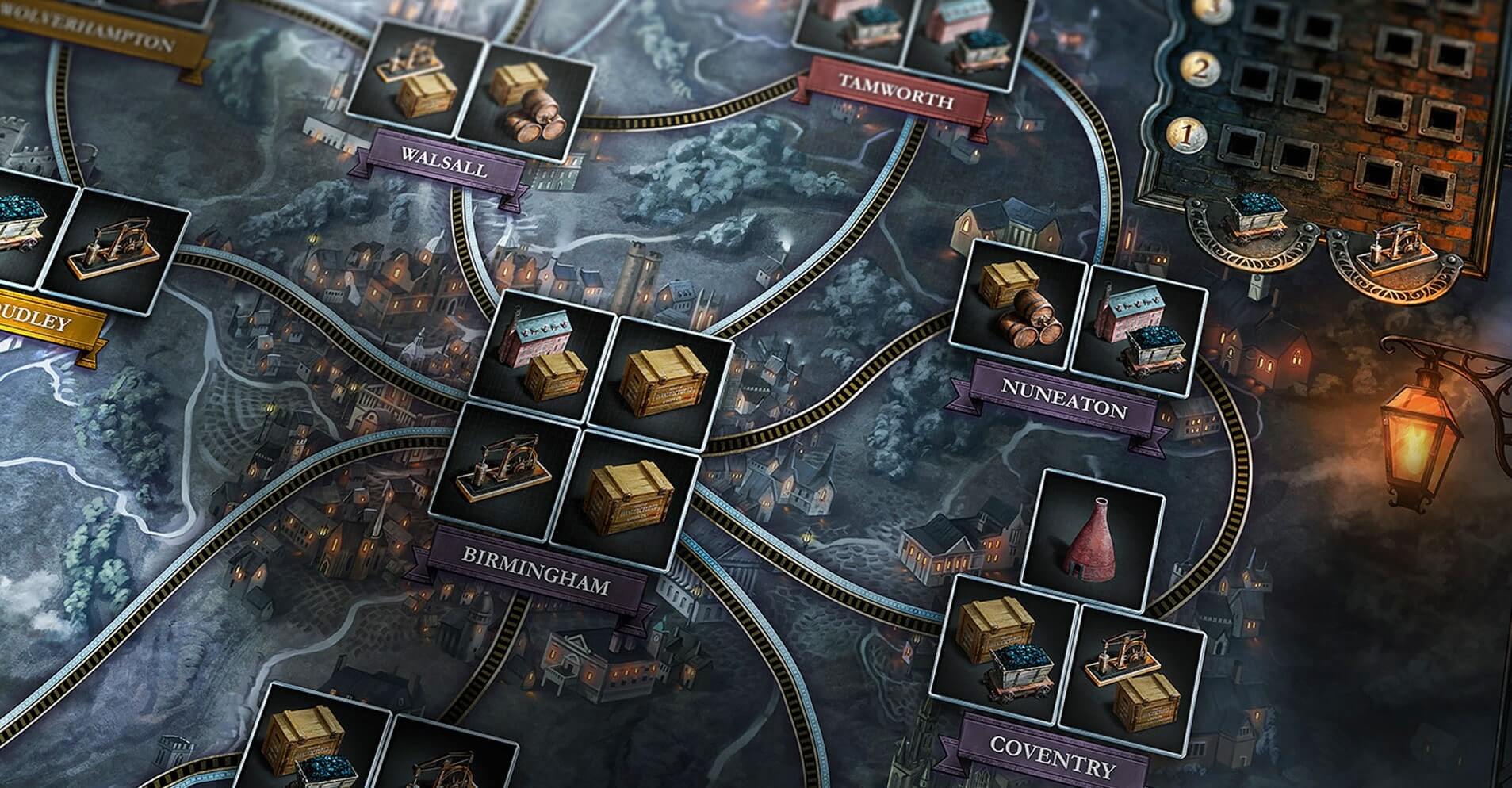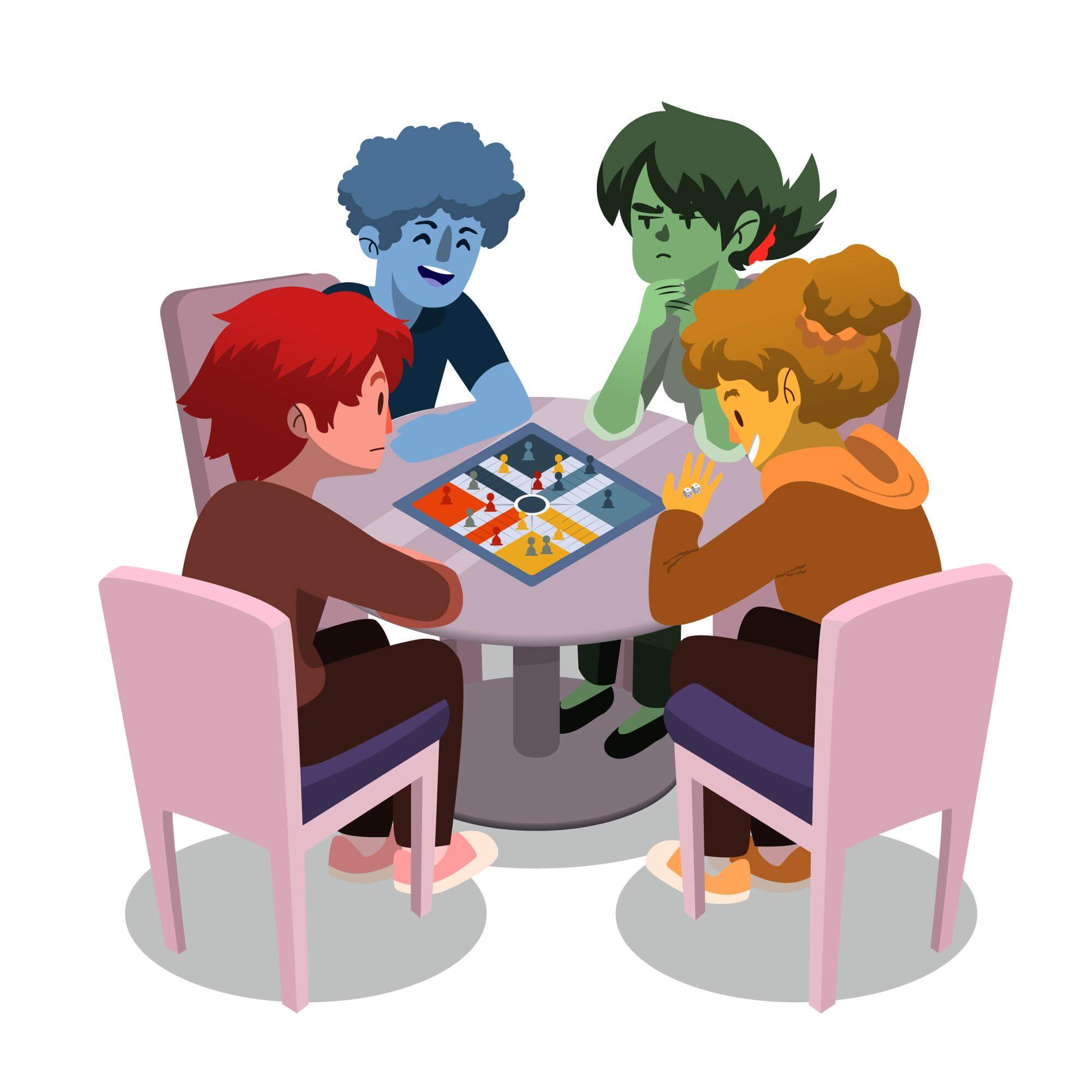When we speak of board games, a lot of people instantly think of rolling dice and moving pieces around. This may be the case for many popular board games today. Dice have been used in games since centuries ago, even in the first board games ever created.
Even though it seems the risky aspect of dice has been appealing to many people throughout many years of human evolution, there are a lot of people and players who prefer to rely on their own minds rather than take a chance on dice. This is understandable, especially in heavy strategy games, because you could be playing for hours and setting up the perfect strategy in your mind and on the board, only to be thwarted by an awfully lucky person who hasn’t put in the same effort as you.
If you also like to keep everything under control and expect the least amount of chance on your game nights, keep on reading through this list;
1. Terraforming Mars
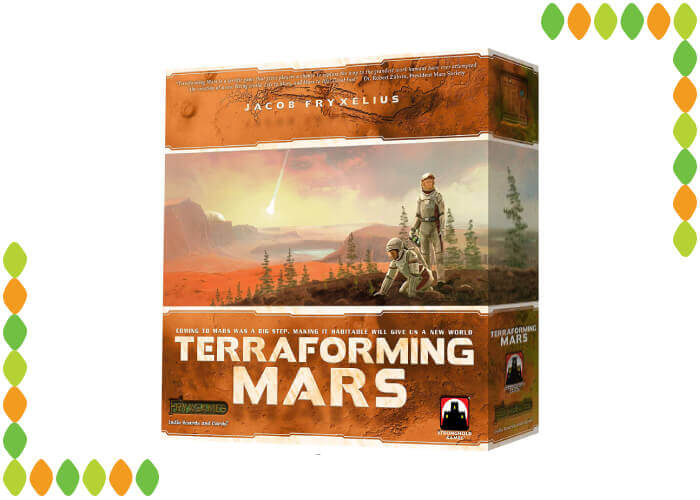
This may be Elon Musk’s favorite board game. Terraforming Mars is all about turning the red planet into the next home for humans. Players compete by collecting resources such as money, heat, and plants to develop their scientific abilities, build cities and habitats, and gain rewards and achievements through terraforming Mars.
Through the course of the game, players will raise the temperature and oxygen level of Mars through their actions. Whenever the atmosphere is breathable and warm enough for humans to inhabit, the game ends and the scores are calculated. Whoever has the most points is the winner of the game.
Terraforming Mars made it on this list because as well as having no dice, it also doesn’t really have any luck in it. Except for the cards that are randomly dealt to players each round, and even that is drafted between players so it is almost evened out. Anything you need in Terraforming Mars, you’ll have to go get it yourself.
2. Blood Rage
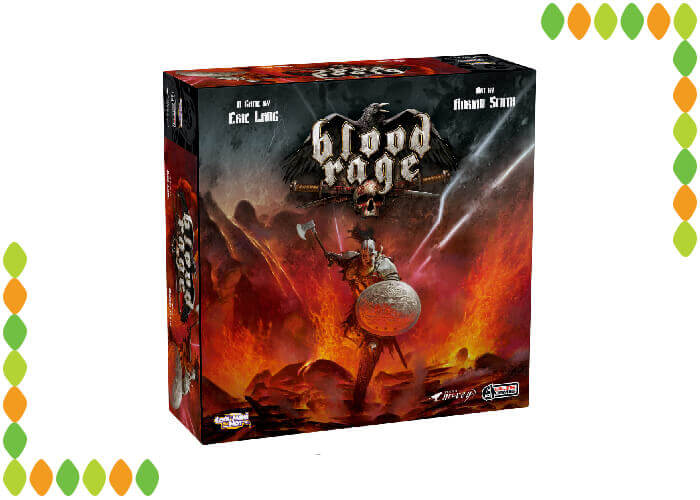
Blood Rage is a game mostly known for its detailed and eye-capturing miniatures. Other than each player having a set of unique warrior miniatures, there are different monsters in various shapes and sizes which makes the game all so rewarding to play. Blood Rage is a Viking-themed game where two to four players take the lead of Viking clans on a mission to favor Odin and ascend to Valhalla.
Players gather different resources like rage, axes, and horns in order to improve their warriors, recruit powerful mystical monsters, and protect themselves from enemy attacks. The game board is a Norse-inspired map of Midgard, separated into different provinces, where players lead their warriors to battle others and plunder for goods.
Everything that happens in the game is performed using a hand of eight cards that players are dealt at the beginning of each round. These cards which can be drafted between players are the only hint of chance in Blood Rage. Hard-core Blood Rage players can even try to find out and memorize the cards their opponents are holding, which I’ve seen a lot of players do.
All in all, you can’t get a break in Ragnarök and can’t rely on the Gods or the hand of fate to help you.
3. Concordia
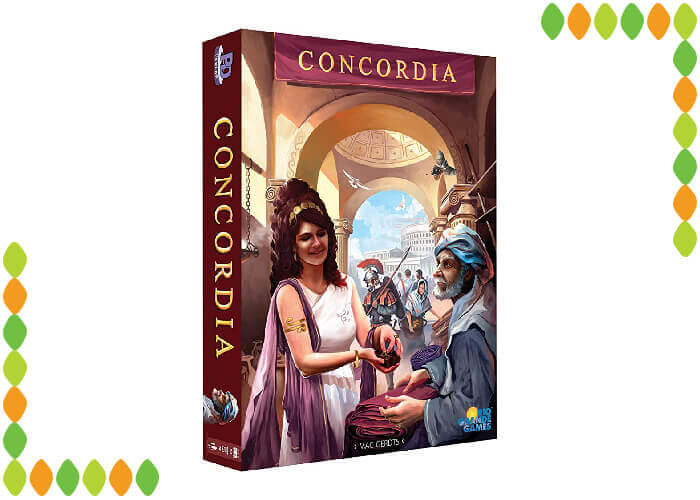
Concordia is a medium-strategy game for two to five players set in the Roman empire where players compete in developing the best empires by collecting resources, constructing buildings, and establishing trade routes.
The game is played on a board divided into several provinces with cities that provide resources. Players try to move their colonists by land or sea to build in these cities and gain access to their resources, as well as score points for controlling them. At the beginning of the game, each player gets a set of cards that are the same between all players. Each turn a player plays any card they want from their hand and performs its actions. There is nothing to do with luck in this process, because all players have the same cards and can choose between any of them.
Of course, players can improve their actions by buying new and stronger cards from the card row, but even then players can copy the actions of a card someone else has played. The only speck of chance I can think about in Concordia is the player order. The first player naturally has better options to choose from, but it really isn’t all that important in the game.
4.Tzolk’in: The Mayan Calendar
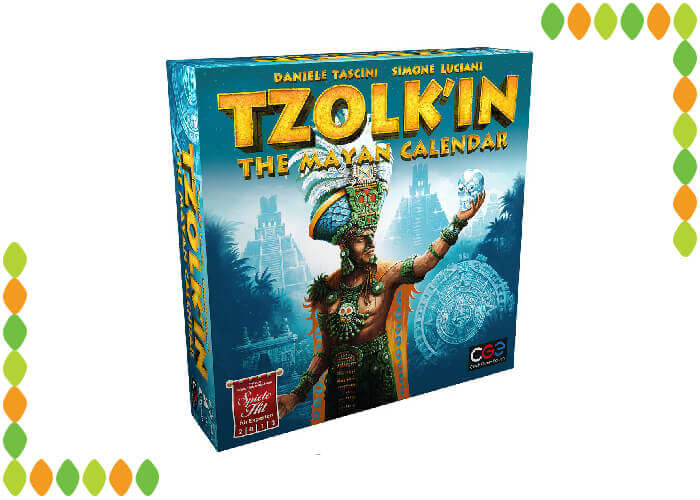
Tzolk’in is truly one the most inventive and innovative games I’ve ever played. In this game, players take the roles of the leaders of different Mayan tribes and compete to become the most successful tribe by collecting resources, building monuments, and worshipping the gods.
Players each control two workers that they can choose to place in six different areas on the board, performing different actions. Workers are placed on the teeth of one of the six gears on the board. Each round, the central gears are rotated to rotate all six outer gears, and move the workers one space forward. This rotation represents one day of the workers working, similar to a Mayan calendar, hence the name.
There are no dice in this game and nothing is left to chance. Tzolk’in is a strategic game because workers must be sent to work at least one round before they can perform the action. And the more you keep a worker in an area, the further they go and the better their action. This is why players must think carefully and plan out their actions for the next few rounds always.
5. Mysterium
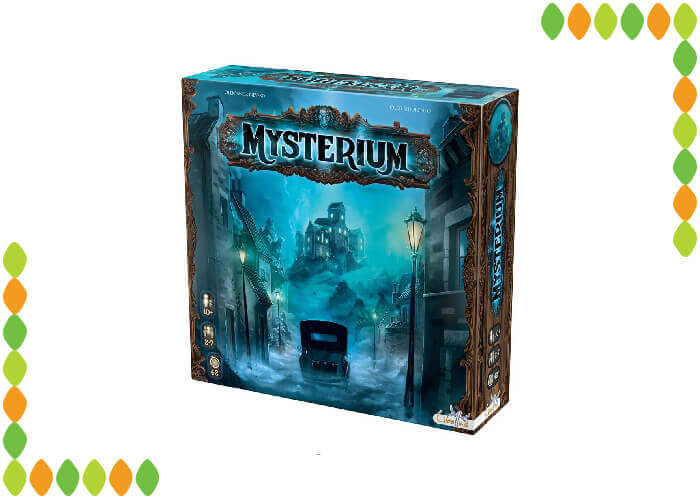
Mysterium is a game without any luck or hidden information, except for the big mystery, of course. That’s because it’s a coop game and everyone is on the same team. Someone has been murdered in their mansion. No one knows who the killer was, where the murder happened, and what the murder weapon was. It’s up to the players to solve the mystery with the help of each other.
One of the players becomes the restless ghost of the deceased, which cannot communicate with the other players, other than showing them some strange visions. The rest become psychics who can reach the dead and speak with them, and try to find out the details of the murder.
A gateway to the world of the dead opens at 12 am, and players have 7 hours, or 7 rounds, to interpret the message of the ghost and let them rest in peace. The ghost knows the answer to the murder mystery, but can only give the psychics some cards with not-so-obvious images on them – it is up to the players to find out what the ghost means.
By 7am, if players have successfully found out the identity of the murderer, as well as the murder location and weapon, everyone wins. If they cannot make a clear connection with the ghost, everyone loses and the ghost must wait another year to try and get help.
6. Santorini
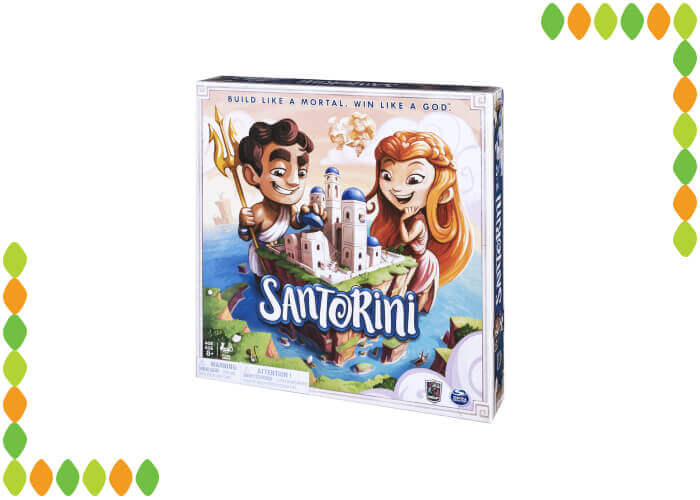
Santorini is a short and abstract game for two to four players. The best mode of this game is for two players, but it’s fun for three players and 2v2, too. In Santorini, players are different Gods and creatures of Greek mythology, controlling two human workers to build the city of Santorini, as you can see on the box cover.
The game is played on a 5×5 grid where workers and building blocks of different levels are placed. Each turn, a player must move one of their workers to one adjacent square, and after that build a block on one adjacent square. If a player is unable to do any of these steps on their turn, they lose immediately.
Workers can move in any of the eight orthogonal or diagonal spaces adjacent to them, but they can only move up one level at a time, so they couldn’t move two a second-floor building from the ground. If at any time, one of the workers reaches a 3rd level building, that player wins the game immediately.
Players can also each draw or choose a God card which gives them special abilities. They could move better, build better, have a passive effect, or even grant a new victory condition to players. Again, this is the only lucky part of the game, and everything else is completely calculatable. Think of it as a modern twist on chess.
Final Thoughts
Sometimes, dice can bring a load of excitement to your table on game nights. But other times you may be frustrated by dice or the beginner’s luck of players at the table. There are a lot of great board games that are abstract and don’t rely on the factor of luck to bring a sense of risk and excitement to them, and we went over a few of the best. If you’d like to add any games to this list, please let me know in the comments.

